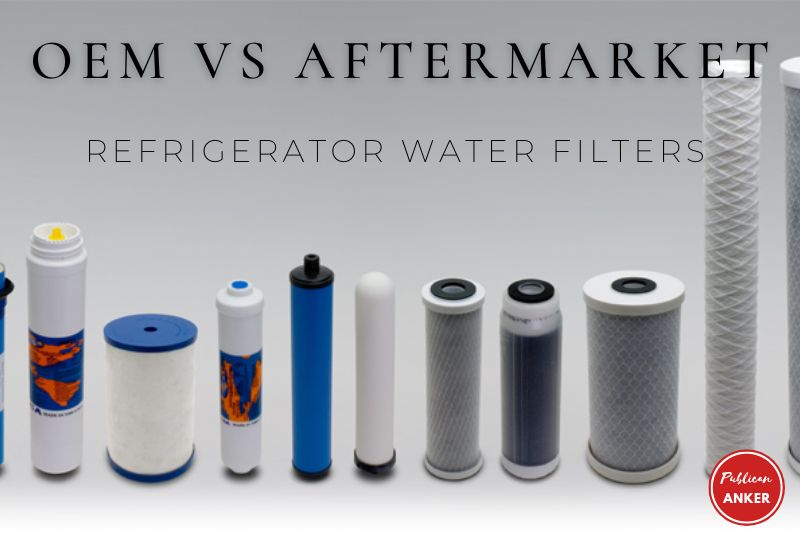Do you know the difference between OEM Vs Aftermarket Refrigerator Water Filters? Because these filters have varied functions and pricing, you need to know. To keep your kitchen clean and delicious, get the proper one if you’re buying a new one!
Initial background: Aftermarket and OEM refrigerator water filters exist.
Your refrigeration system manufacturer usually provides the equipment manufacturer. An aftermarket filter is normally bought from a hardware shop or other merchant.
What are OEM Water Filters?
Original Equipment Manufacturer (OEM) Filters are filters that use OEM parts. The filter is made to work with the water supply system in your refrigerator. This makes sure that you will have the best filtering experience possible.
The filter costs more and needs to be changed every six months. Aftermarket goods, on the other hand, can be easily replaced every three to twelve months.
The filtration process is meant to ensure that the filters last longer. But also make the water taste better and be cleaner than the aftermarket types. If buying OEM will get me this quality of fresher water, it’s worth it!
Pros of OEM Water Filters
There are several advantages associated with water filters. Although OEM is designed to be better, several aftermarket products on the market provide quality.
This fits snugly into your refrigerator water dispenser supply line. To prevent filter loss and supply contamination, it usually has an anti-leakage valve.
Oem requires very little maintenance. It rarely leak because they are adequately engineered for your specific refrigeration system. It lasts longer than aftermarket versions, saving you money. OEM filters cost less than aftermarket ones.
Cons of OEM Water Filters
OEM filters are more expensive than aftermarket filters. The filter requires special tools to change the o-ring, and o-rings must be changed regularly. If OEM will supply me with cleaner drinking water, it’s worth every penny!
What are Aftermarket Water Filters?
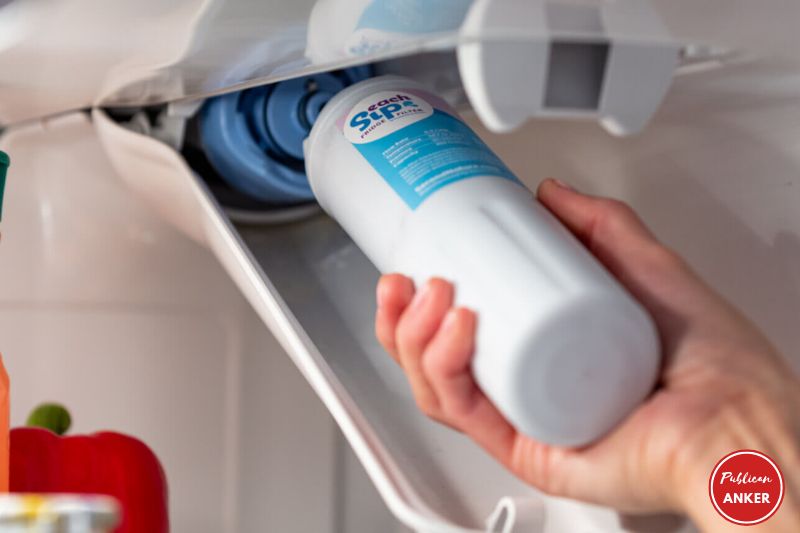
Aftermarket refrigerator water filters are cheaper and easier to get. These filters can cost anywhere from $5 – $20, depending on the size and quality you’re looking for.
OEM filters usually start around $25 and go up from there depending on what brand you want to purchase. Some firms sell reconditioned OEM filtration systems.
Aftermarket filters are made to be as good as OEM filters at a lower price. This gets rid of the expensive “OEM tax.” Aftermarket fridge filtering systems can operate as well as OEM ones and last longer.
Pros of Aftermarket Water Filters
The price is significantly lower when you buy aftermarket than OEM products. They usually last for much longer, saving you money in the long run.
The OEM filter requires special tools to change the o-ring, and o-rings must be changed. This isn’t true with aftermarket products. Aftermarket filters prevent overpricing and assure quality.
Aftermarket filters are more complicated to maintain o-ring seal integrity and pressure drop. These devices come with green cleaning tablets or mineral balls for buildup removal.
Cons of Aftermarket Water Filters
The price is significantly lower when you buy aftermarket than products. They usually last for much longer, saving you money in the long run. Change the OEM filter’s o-ring frequently with the required equipment. This isn’t true with aftermarket products.
Similarities Of OEM Filters And Aftermarket Filters Possess
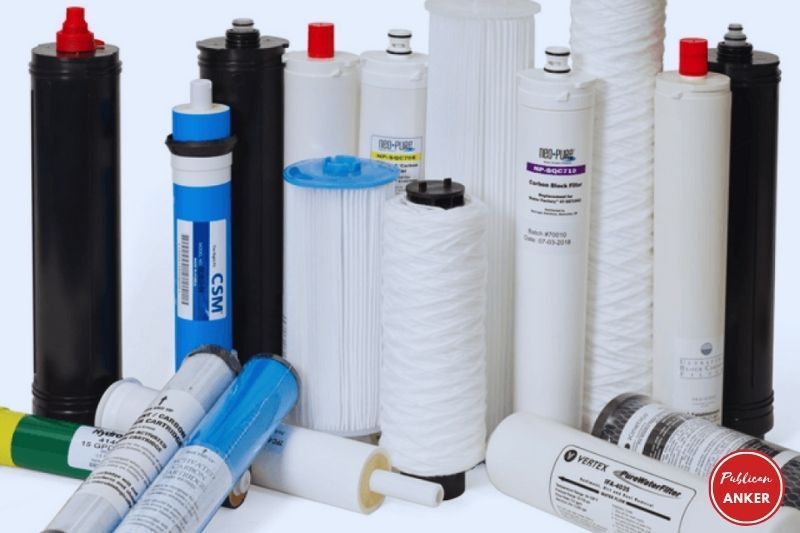
Both OEM and aftermarket filters use o-rings. High-end refrigerators use OEM filtering systems. Your refrigerator’s OEM filter matches its make, model, and water dispenser supply line. O-rings must be changed regularly to maintain quality at prices.
Since instruments aren’t needed, aftermarket filters’ o-rings are easy to change. OEM and aftermarket systems have anti-leak valves to keep drinking water pure.
O-rings need to be checked regularly by applying hand pressure. If there is a leak, o-rings must be replaced. OEM filters use o-rings with end caps made of brass. O-rings are between the O-ring valve on your refrigerator and the o replacement filter.
Aftermarket Filters use o-rings with end caps made of plastic. The instrument must properly remove and replace o-rings. Aftermarket o-rings are much easier to change since tools aren’t needed.
Differences Between OEM and Aftermarket Refrigerator Water Filters
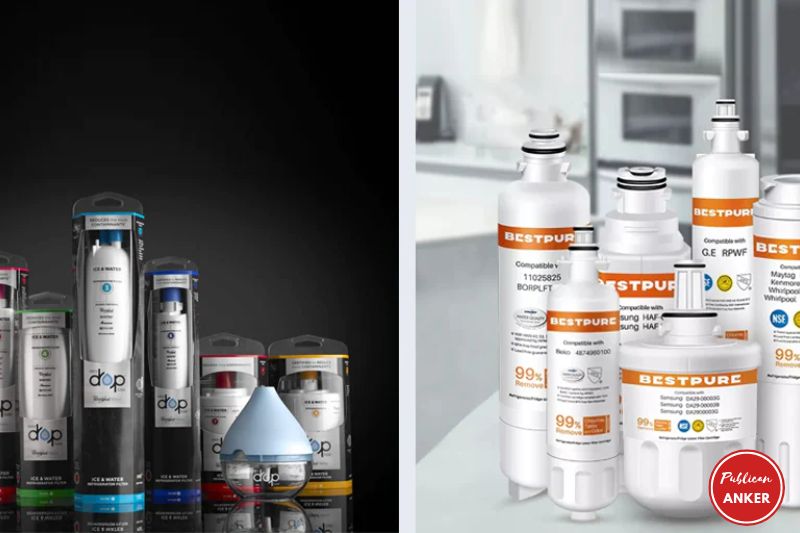
Contaminants
O rings are used by OEMs to stop leaks, which keeps contaminants from getting into the water system. Anti-leak valves prevent contamination and loss of safe drinking water.
A refrigerator without a filter may have sediments, rust stains, chlorine, hydrogen sulfide, asbestos fibers, sand, and tiny particles.
O rings prevent Aftermarket Filter leaks, preventing pollutants from entering the water system. OEMs use anti-leak valves to prevent pollutants from contaminating drinking water.
Contamination can be more pronounced during periods of high water usage.
Gallon Capacity
OEM filters can vary in gallons depending on the size of your refrigerator. OEM filters have a higher capacity than aftermarket OEM water filters. Standard o ems for refrigerators range from 6,000 gallons up to 12,000 gallons.
The average OEM o-ring capacity is 6,000 gallons. The OEM o-rings range from 6,000 gallons up to 12,000 gallons. OEMs can filter pollutants and germs from drinking water, making them better than aftermarket filters.
Relevant Posts for you:
- How To Reset Samsung Refrigerator
- How To Measure A Refrigerator
- Best Built In Refrigerator
- Best Garage Refrigerator
Certifications
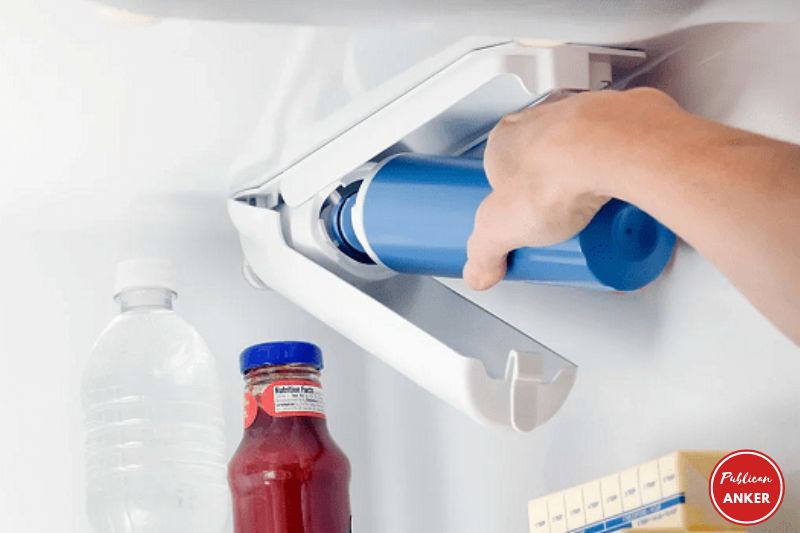
Certifications
Aftermarket Filters are not certified. OEM water filters are tested for leaks and premature failure. UL, NSF International, and WQA have tested OEMs and aftermarkets.
OEMs are constructed of stainless steel, which doesn’t leach into water like plastic. O-rings must be checked regularly by applying hand pressure. If there is a leak, o-rings must be replaced. OEM connections are also BPA-free. BPA may be dangerous, especially when heated.
Water Temperature
OEMs can be used in water temperatures as low as 3 F and as high as 122 F. But aftermarkets have a smaller range and less room for error. The materials that go into the construction of OEM o-rings are not affected by heat or cold.
OEMs will also fit most brands and models of refrigerators. Aftermarket filters may require some improvising to add them to your refrigerator. Common areas that need adjusting include pipes and doors, making changing new difficult.
Is there a difference between refrigerator water filters?
OEM filters may be “made in China,” so buyers beware!
Are our refrigerator water filters any good?
Yes, especially if you want a durable product. Filters reduce pollutants and improve water taste.
Are water filters made in China safe?
Yes, the short answer is yes. However, most manufacturers of OEM filtered drinking water in the US and Europe. Most drinking water filters are NSF-certified.
How do I know what refrigerator water filter I need?
Your filter needs will depend on the o em water filter itself. However, all filters, water, and ice are compatible with most refrigerators. If your refrigerator is older than 10 years, it may have: Water filter connectors that may be plastic. Also, consider if it is time to change out other items such as a new ice maker, hoses, and defrost lines.
Conclusion
Today’s most popular refrigerator water filters are Publican Anker’s. They provide alternatives for any budget and have various variations to assist you choose the best one. Hopefully, this article has helped you find something that suits your needs!
If not, please let us know what type of filter you need so our experts can recommend one just for you. We want all clients to be satisfied with our products and services!
